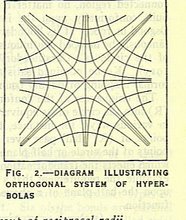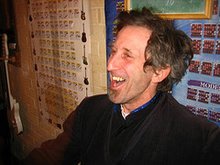The 1100th Movement
Let's all head to the tipping point axle and hang ten.
Sunday, January 11, 2015
Sunday, November 23, 2014
Notes and Extrapolations on the Fergus-Elora Community Development Corporation/Cooperative Credit Union? explorative meeting
November 22, 2014, Fergus
Grand Theatre
Presenters
Paul Flach (Fergus-Elora)
and Christina Sinopoli of the Mars Impact Investment Centre (Toronto)
Paul Flach
Paul went first, using a
power point slide show:
he spoke to the idea of
the need for a mind change within planning relative to economics and
community, but also of
what it was we all might agree on relative to Elora and Fergus
achieving their full potential as communities, namely the blessings
of place already distinct to the area, the natural and human
heritage, and that most of us would agree that it would not achieve
that potential on its own if left to existing practices and mindsets.
He spoke of going to
events like the soap box derby and the Scottish Festival parade where
he experienced community within the space of the event, but as
soon as the events ended he realized that there was no place
for the community to enjoy itself as a community, and that if a truck
with tables and chairs had shown up, such a place would have
immediately been created.
It being one thing to
create buzz and another to maintain it. Thus one of the goals of CDC
was to create opportunities for place.
The CDC having spoken to
the municipality and the BIA's has already reached an understanding
with them relative to the role the CDC wants to establish for itself
in the community, which includes focusing on creating a business map
of the area, which is a conceptual tool for understanding what
businesses we have and what businesses we lack, and therefor what
businesses we need (as opposed to say two drug stores in Elora was my
thought.)
He also examined the idea
of local tourism, by which he meant creating reasons for locals to
remain in their communities, a complete “hometown experience” as
opposed to staging a town”, the best examples of which are to found
in Europe, an approach that doesn't rely so much on an A to Z linear
planning mindset, nor one that happens simply my mistake, but one
that evolves by creating opportunities for innovation.
He then spoke to the fact
that relative to the kind of place people want to live in, (ie, one
with respect for its heritage) then the community needs to ensure
that it has the skills and trades to carry out the work, ie masonry
and fine carpentry et al: a goal he noted had been broached with the
Centre Wellington Foundation, with whom the CDC now has established a
relationship, in order to help our businesses work towards a common
infrastructure.
Part of that issue
revolves around the fact the most of the area's built heritage is
neither listed nor designated as such, terms that don't prevent
demolition, except to the extent that they offer differing time
lengths for appealing demolition. Related to that issue, is that most
new buildings not only aren't designed with any sense of what is
essential understanding of the communities in which they are being
built, they aren't built to last, aren't built with a commitment to
future generations, which was the way the original builders of our
communities designed buildings. The emotional connection of place is
lost when communities aren't built to last.
He also spoke of the need
to make use of under utilized buildings already in place.
One of his slides was a
quote from the Ontario government's Places to Grow legislation, an
act was not designed to be used to create the sprawl that has
happened in the areas in its purview, but actually contains clauses
for protecting water, the environment and for promoting the growth of
community.
The problem is what Paul
called the Bad Urban Planning Habit, which is a habit of citizens,
since urban planners cannot on their own accord declare themselves
the consciences of their communities, so it is citizens that need the
change of mindset, and the biggest change involves the car. As things
now stand, our communities are designed to accommodate spaces that
accommodate the movement, the parking and barriers to protect
pedestrians from cars, so that most of the available space is gobbled
up, restricting the possibility of creating place.
In order to empower
planners to design urban environments differently, we need to create
a common will, backed by both vision and investment.
Paul then went on to
explain the evolution of mono zone planning, which occurred after the
invention of the car, when everything began to be designed for the
car, which is how we ended up with Suburbs without community cores,
manufacturing areas that workers had to drive to, shopping malls with
massive parking lots and the collapse of the urban cores of most
cities, Mixed use development has made a comeback largely because
young people don't want to live in Suburbs, or buy cars or maintain
large lot homes. Walkability was lost. When people reject the notion
that they need to be able to park immediately in front of where they
want to shop, when they reject the notion that the car matters more
than the sense of place, then visions of livable communities can
begin to emerge that enable planners to create plans that reflect
that new understanding of what the public wants
The Public square is a
place where people gather whether there is an event gong on or not,
especially in places that are not only built to human scale, but to
the pedestrian walking pace, a transition from the 80km an hour
suburban road to the 5km an hour walking pace. Such a change in
attitude, when accompanied by respect for the both the built and the
natural environment, and with good aesthetics on the human scale,
creates community involvement.
Inside that scale, spaces
like laneways come into play, spaces once reserved for garbage,
spaces once avoided, spaces lost to the community, spaces now being
transformed all around the world through backdoor cafes, shops and
seating. Laneway transformation of lost spaces into usable places to
sit and talk, become places to gather and celebrate and plan. Spaces
which both Elora and Fergus have, and which could be re-purposed to
great effect.
Paul then spoke of the
destruction of Christchurch New Zealand during a natural disaster,
leaving the citizens and official with an intense sense of loss for
the city core as it had once been, with an almost clean slate to work
on, and a community committed to rebuilding itself from within,
Christchurch has engaged in extensive community outreach and vision
development, in order to restore the core in such a way that it
honours the lost past.
The other thing relative
to walkability that Paul broached at the local level was the
development of community places within walking distance of one
another, so that the businesses between the hubs benefit from the
foot traffic, ie, assuming that Landmark develops the south side of
the Grand River with some sense of community place, and the Elora
arts centre was redeveloped as a more active community place the two
spots would serve as hubs for walkers.
In his conclusion Paul
spoke of the need for public and private investment, a community of
both investors and supporters dedicated to increasing the social
value of renovation, restoration and redevelopment projects from here
on in. He also noted that the CDC was considering the idea of
creating a credit union, so that the cooperative ideals of that kind
of banking would reinforce the vision of the CDC.
Christian Sinopoli
The MARS Centre for Impact
Investing
Christina's shorter talk
revolved around the history and evolution of Community Development
corporations, and the investment tools used by different
organizations in different situations. She spoke of social financing
through partnerships, and stakeholders whether they were directed at
social or environmental problems. All CDCs were mission based, and
vision preceded and drove all their activities. So that the creation
of the vision was the single most important determination of path the
CDC followed when it came to financing, be it convertible debt, load
guarantees, Term Deposits, Equity Investment, Patient Capitol or
Community Bonds, Micro Funds, the DUCA credit union social
development Funds, Angel Groups, all of which are very active in
Kitchener Waterloo.
She gave examples such The
YMCA Elm centre built to house low income women etc. the Mustard Seed
Co-op that was created to provide grocery shopping in downtown
Hamilton neighbourhoods with access to uptown stores. She spoke of
Zooshare Biogas CDC create to use waste materials from zoo animals
for feeding the Hydro grid and helping to sustain the finances of the
zoo. The Toronto Atmosphere Fund, which was a municipal initiative
focused on ensuring the continued improvement of Toronto's air
quality.
She advised of the need to
map out an investor base, to understand the regulations surrounding
all aspects of any project. But she also suggested that sometimes
bootstrapping - developing a venture without the capitol creates its
own momentum and opportunities.
She also spoke to the
importance of human capitol: of mentorship and of the value-adding
that comes from inviting everyone to the table. She also made note of
the Mars centre's Canadian Task Force Report on Social Finance:
http://impactinvesting.marsdd.com/strategic-initiatives/the-canadian-task-force-on-social-finance/.
She concluded by stating
that innovation doesn't just happened, and that serendipity happens
when you are prepared to grasp it as it is happening.
Monday, February 18, 2013
The 1100th Movement
It's been a long time since I've posted here but had these thoughts on Facebook
I propose we unite global tipping point movements to the cause of the 1100th Movement, a planetary celebration of the up coming 1100th anniversary of the founding of Iceland's parliament in the year 930. That way what Iceland has done with its gangster capitalists and constitution can become the basis for truths not told, and deadline for the peaceful passing of the petroligarchy and all Hanseatic League like corporatist guardian classes.
Wednesday, December 1, 2010
The context of the Leaks
Corporatism: Mussolini was defeated in WW2 (after having been aided and abetted by the Conservative Party of Canada as well as Bush League Americans and the followers of King Edward the fascist in England) but fascism - what Mussolini called the union of corporations and the state - won the war, the Cold War was the subsequent ruse by which western democracies were conquered from within: America is home to the greatest corporatist regime in the history of the world as evidenced by the shakedown of the American economy by bankers and the fact that the source of 95% of the world's opium is still flowing after 9 years of War in Afghanistan. The metaphor is Reagonomics via Iran-Contra: a drugs,arms and money economy in which corporatists control pseudo-democracies, and which began when the American military fist allied itself with the mafia in NY Apr. '42. The payoff for the mob took place in 2007-08 when they were allowed to launder 352 billion dollars in narcotics profits into the global banking system.
Two different Julians, two different types of courage.
Alright Fantino, show you're not a wimp, demand that Tom Flanagan be arrested for inciting the murder of Juilan Assange. But we know you don't have the balls to enforce the law in the corridors of power because you are nothing but a running dog whose tail is wagged by them whenever they want you to beat up people who actually do believe in democracy and the Charter of Rights.
2 seconds ago · Like · Comment
2 seconds ago · Like · Comment
Tuesday, November 30, 2010
Here it is in a nutshell
"Fascism should more appropriately be called Corporatism because it is a merger of state and corporate power."
Benito Mussolini
Benito Mussolini
Subscribe to:
Comments (Atom)


